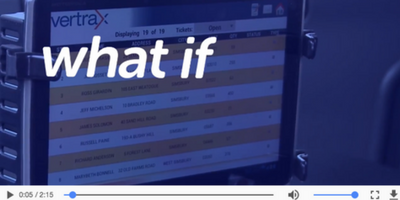
One of the most volatile relationships in the propane and fuel oil transport business is between drivers and dispatchers. It takes both sides to ship freight on schedule, yet there continues to be a disconnect between these teams. In order to close the communications loop between your drivers and dispatchers consider implementing the right technologies and strategies. Here are a few top contenders to help you deter any communication slips in your company.
Paperworks and Portals
Technology can be wonderful, if you know how to use it effectively. Take back-office synchronization, for example. With this type of tech your dispatchers and drivers can both upload delivery plans for the day. Both sides of the team will be on the same page when it comes to handling invoices and other paperwork during and after shipments are fulfilled.
Community of Drivers and Dispatchers
While technology is great for helping mend driver and dispatcher relationships, there is one way to help your team members from the get-go. Your drivers and dispatchers should be on the same wave length before the first shipment of propane and fuel oil deliveries is coordinated. How do you do this? Establish a way for your team members to create a sense of community.
Transportation publishing company Randall-Reilly expands on how to make this happen: "Whether it’s getting some face time with drivers via video conferencing or giving them some praise on social media, making use of the different communication platforms available can help enhance the effectiveness of your exchanges." Here are some examples of how to do this effectively:
- Set up a social media group for your dispatchers and drivers, and use it as a channel for communication for both sides. Make sure to post "success stories" from both sides of the table, to give praise and support for your team.
- Use video chat as a way to communicate, rather than just by phone or email. Face to face exchanges allow drivers and dispatchers to avoid miscommunication misshaps that often occur when reading between-the-lines of text.
Wireless Messaging
CB radios are a mainstay in the fuel oil trucking industry, but instant messaging often overpowers this old school method of communication. That’s because your drivers and dispatchers can communicate via texting wherever they are, while CB radios have limits on reaching an audience. Texting, of course, is against the Federal Motor Carrier Safety Administration (FMCSA) regulations for commercial truckers, so make sure your drivers are off their phones while driving. However, for handling communication when sitting still, text messaging is the easiest way to contact dispatchers, and vice versa. Plus, each side has their vital messages documented in text in their mobile devices for easy reference.
In-Vehicle Navigation
One of the most difficult parts of being a dispatcher is helping to route drivers, especially when fuel oil drivers are already off the beaten path. Instead of depending on maps and paper printouts of directions, in-vehicle navigation gives drivers an instantaneous routing option. Wherever your driver may be, they can easily pull up their location via GPS on their dashboard navigation system. Whether they are stuck in a truck-prohibited location, or dealing with a sudden construction blockade, in-truck navigation offers the easiest, and fastest, ways to reroute a driver. Never again force your drivers and dispatchers to spend wasted time on trying to reroute mid-delivery.
At the end of the day, your fuel oil business requires an open channel of communication between your drivers and dispatchers. Between the latest technologies and good, old fashioned one-on-one communication methods your crew will be able to work together in a cohesive and productive fashion. Your business will thrive, and the communications loop between drivers and dispatchers will be all patched up.
How can Vertrax technologies help your dispatch team? Watch our video.


